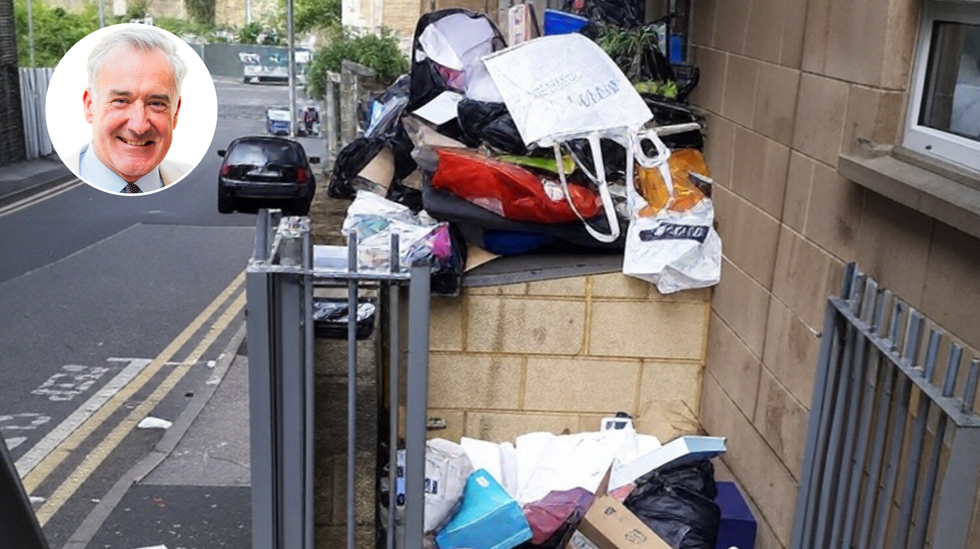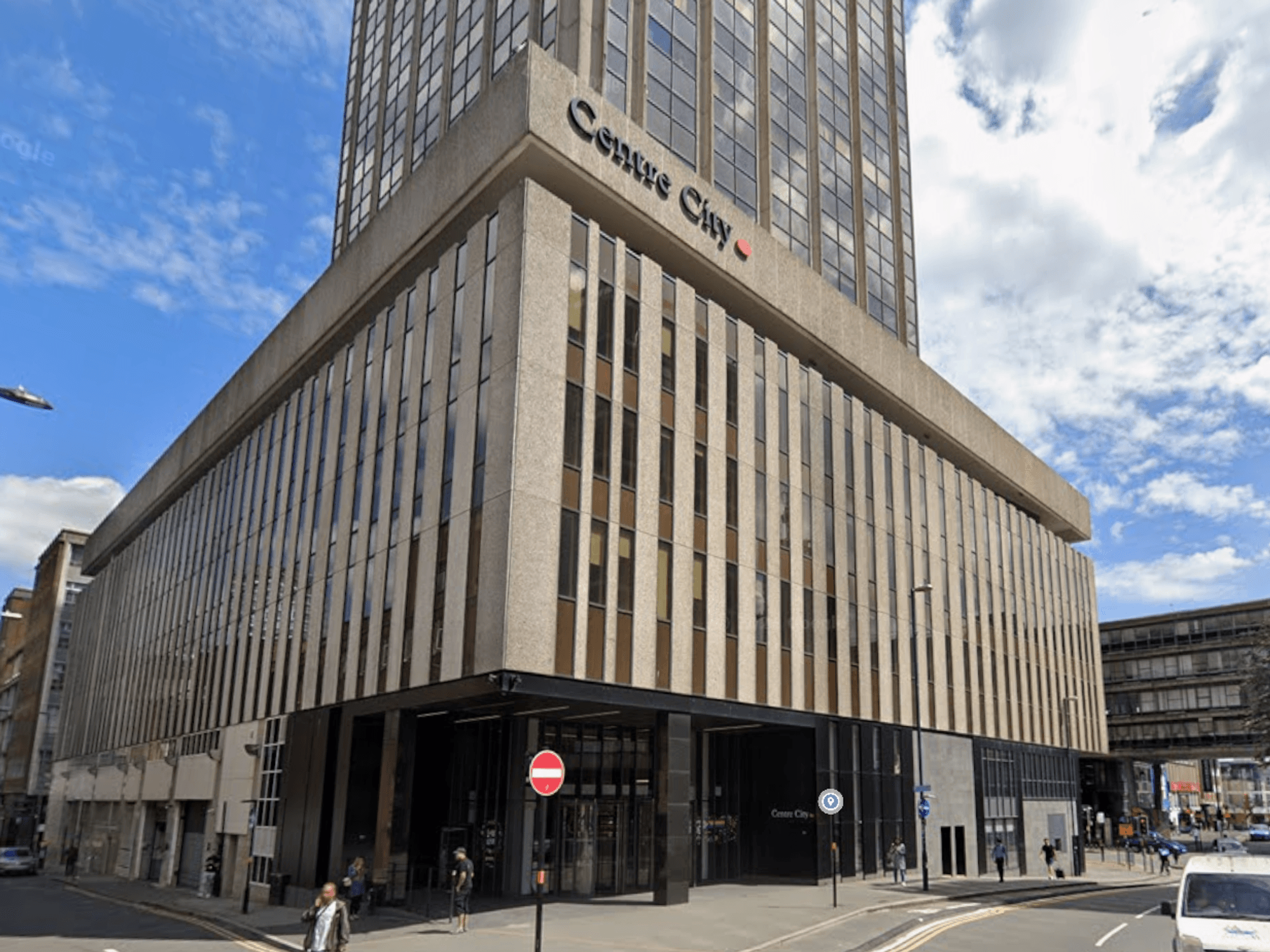Immigration has deracinated our communities but another destructive force is being downplayed - Colin Brazier

Students BANNED from saying 'illegal immigrants' by woke university: 'WHY are they doing this?' |
GB News
OPINION: Reform's newly minted councillors should insist that the business model for higher education ought to change
Don't Miss
Most Read
Trending on GB News
It’s that time of the year again. Over the next few weeks, life in parts of our biggest cities will become rowdier, uglier and smellier. Why? The academic year at our universities is coming to a crescendo.
And that means more post-exam parties, more sleepless nights for working people and more rubbish-dumping when students finally leave their rented accommodation.
Following the expansion of higher education ordered by Tony Blair, more than a million students now study away from home. They are not evenly spread, but concentrated in what can sometimes feel like ghettoes. Parts of cities like Manchester and Bristol have seen areas which were once home to tight-knit, respectable working-class families, turned over - almost exclusively - to student ‘houses of multiple occupancy'. A city like Leeds, for instance, now boasts a 70,000-strong student population. Its ’night-time economy’ is said to rely on them.
But with those numbers can come trouble. Such has been the rise in anti-social behaviour by students in Leeds that the universities recently took to funding round-the-clock patrols by security guards. In Durham, the university has encouraged a de facto curfew to limit the worst excesses.
At ancient institutions, such as Durham, ‘town versus gown’ tension has been part of the warp and weft of life in the city since medieval times. Relatively wealthy students, not there for long, rubbing shoulders with poor, sometimes resentful, permanent residents.
But having had only a handful of institutions for centuries, the UK now has scores. And it’s only when you walk around these student areas that the speed of change and its impact on forgotten communities really hits home.
Recently, I saw this for myself. I was visiting one of my daughters. She happens to be living in student digs not far from where, almost 40 years before, I’d been a student too. And, although, in the late 1980s, it was already clear that a growing university would have an impact on the surrounding streets, the scale of that change was then in its infancy.
When I was a student, there were still many terraced houses roundabout that were family homes. Tidy, well-tended front gardens. Pubs for locals. Residents rising early for work. The edges were fraying, but there was still a sense of neighbourliness and social cohesion. Houses were still homes, not warehouses for the itinerant.
Fast forward four decades, and the picture is very different. The locals, almost without exception, have been cleansed. There is no longer any pride in home ownership. I’m sure there are many good landlords. But judging by looks alone, the appearance of disrepair, the abandoned paintwork, the wheelie bins in a state of Brownian motion, it would seem that they are few and far between. What shops there are sell vapes and fast food, or advertise student properties.
 Immigration has deracinated our communities but another destructive force is being downplayed - Colin Brazier
Immigration has deracinated our communities but another destructive force is being downplayed - Colin BrazierAfter the visit, I posted my observations on X, and the responses were telling.
One reply went: “Our city is now entirely a student dormitory with supporting hotels for university visitors, an empty shell which was once a thriving, beautiful 'family' city. Destroyed by the university's drive for ££££.”
There were despairing dispatches from big cities like Newcastle and Nottingham. But others from small, genteel communities not long associated with higher education - places like Canterbury and Bath, where the sense of despair at the decline was compounded by a feeling that the phenomenon was almost completely ignored.
The most compelling contribution was from ‘Jim Chimirie’, who posted these words: “A damning snapshot of what's happened to so many British towns and cities. What were once stable, tight-knit communities - anchored by working-class families with pride, purpose, and permanence - have been bulldozed by a toxic mix of university sprawl, buy-to-let greed, and political neglect.
“These 'student neighbourhoods' aren't communities at all. They're revolving doors of noise, litter, and absentee landlords, propped up by bloated university bureaucracies churning out degrees of diminishing worth. And as for the locals? Priced out, pushed aside, and politically ignored.
“This isn't just about nostalgia - it's about the cultural and social fabric of Britain being ripped apart. One postcode at a time. When you erase the settled, you erase the soul.”
Earlier this month, The Spectator magazine had on its front cover a cartoon image of what it described as ‘Scuzz UK’; all abandoned shops and broken windows. The accompanying editorial bemoaned the disappearance of civic pride and the arrival of a kind of creeping lawlessness. A tolerance of things like shoplifting, e-bikes on pavements and public smoking of cannabis.
I would agree with the depiction. But I also think the role played by student areas in this story of urban deracination is underplayed. It’s as if we’ve created a giant factory where many of the people who will go on - in time - to become politicians, civil servants and policy-makers, learn bad habits. By normalising such an environment, we reduce the likelihood that our future leaders will be exercised by the problem.
So, what to do? In a sense, a correction is probably already underway. Student numbers peaked two or three years ago. Demographics and economics are kicking in. Worthless degrees, student debt and attractive apprenticeships will take the top off the market for student housing.
But what about making the universities responsible for the mess they have created? With Reform now in charge of several local authorities which cover student areas, what’s to stop its newly-minted councillors from insisting that the business model for higher education ought to change.
That it should take more account of local people whose communities have been eviscerated by the expansion in student numbers.
Reading comments on X after Reform’s election success, I was struck by one post which scorned those voters who turned out for Nigel Farage’s party. The commentator linked his supporters with a lack of higher education. You’ve heard that ‘low information’ voter slur before, I’m sure.
It’s particularly smug given how, as I’ve just described, the headlong rush for more higher education has produced ‘victims’. Pockets of an overlooked and neglected working class. Without highly-credentialed networks or the affluence to allow for luxury beliefs. Whose only asset - their home - is devalued before their eyes by an endless wave of newcomers.
The folk who have effectively been forced from their homes by university expansion are an extreme version of a commonplace. People who have seen their communities rendered uninhabitable by the vices of globalisation, be that our obsession with the knowledge economy or the economic benefits of mass migration.
They share one thing, though: these once respectable areas, now given over to students who couldn’t care less, or migrants who don’t know any better. These ghettoes have one thing in common: they are easier to ignore than to do something about.
More From GB News










